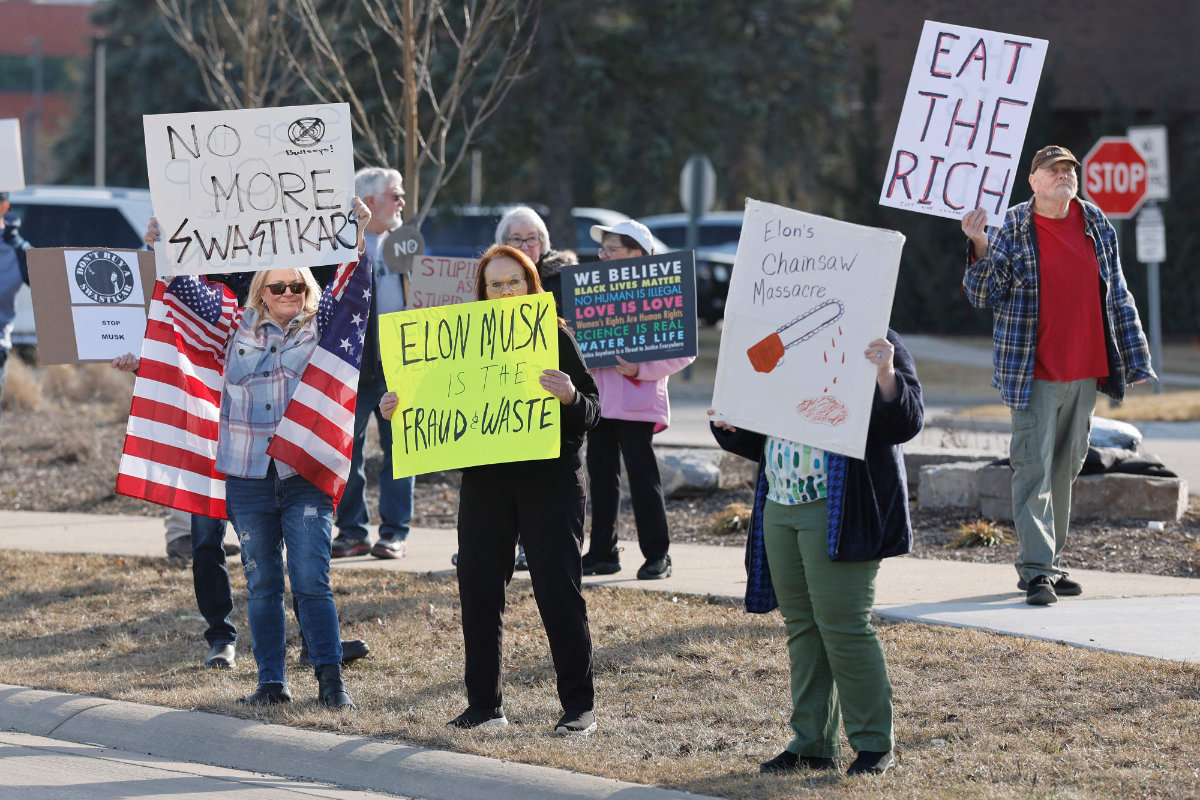WASHINGTON: Donald Trump told a group of evangelicals they “cannot afford to sit on the sidelines” of the 2024 election, imploring them at one point to “go and vote, Christians, please!“
Trump also endorsed displaying the Ten Commandments in schools and elsewhere while speaking to a group of politically influential evangelical Christians in Washington on Saturday. He drew cheers as he invoked a new law signed in Louisiana this week requiring the Ten Commandments to be displayed in every public school classroom.
“Has anyone read the ‘Thou shalt not steal’? I mean, has anybody read this incredible stuff? It’s just incredible,” Trump said at the gathering of the Faith & Freedom Coalition. “They don’t want it to go up. It’s a crazy world.’’
Trump a day earlier posted an endorsement of the new law on his social media network, saying: “I LOVE THE TEN COMMANDMENTS IN PUBLIC SCHOOLS, PRIVATE SCHOOLS, AND MANY OTHER PLACES, FOR THAT MATTER. READ IT — HOW CAN WE, AS A NATION, GO WRONG???”
The former president and presumptive Republican presidential nominee backed the move as he seeks to galvanize his supporters on the religious right, which has fiercely backed him after initially being suspicious of the twice-divorced New York City tabloid celebrity when he first ran for president in 2016.
That support has continued despite his conviction in the first of four criminal cases he faces, in which a jury last month found him guilty of falsifying business records for what prosecutors said was an attempt to cover up a hush money payment to porn actor Stormy Daniels just before the 2016 election. Daniels claims she had a sexual encounter with Trump a decade earlier, which he denies.
Trump’s stated opposition to signing a nationwide ban on abortion and his reluctance to detail some of his views on the issue are at odds with many members of the evangelical movement, a key part of Trump’s base that’s expected to help him turn out voters in his November rematch with Democratic President Joe Biden.
But while many members of the movement would like to see him do more to restrict abortion, they cheer him as the greatest champion for the cause because of his role in appointing US Supreme Court justices who overturned national abortion rights in 2022.
Trump highlighted that Saturday, saying, “We did something that was amazing,” but the issue would be left to people to decide in the states.
“Every voter has to go with your heart and do what’s right, but we also have to get elected,” he said.
While he still takes credit for the reversal of Roe v. Wade, Trump has also warned abortion can be tricky politically for Republicans. For months, he deferred questions about his position on a national ban.
Last year, when Trump addressed the Faith & Freedom Coalition, he said there was “a vital role for the federal government in protecting unborn life” but didn’t offer any details beyond that.
In April of this year, Trump said he believed the issue should now be left to the states. He later stated in an interview that he would not sign a nationwide ban on abortion if it was passed by Congress. He has still declined to detail his position on women’s access to the abortion pill mifepristone.
About two-thirds of Americans say abortion should generally be legal, according to polling last year by The Associated Press-NORC Center for Public Affairs Research.
Attendees at the evangelical gathering on Saturday said that while they’d like to see a national abortion ban, Trump isn’t losing any of their deep support.
“I would prefer if he would sign a national ban,” said Jerri Dickinson, a 78-year-old retired social worker and Faith & Freedom member from New Jersey. “I understand though, that as in accordance with the Constitution, that decision should be left up to the states.”
Dickinson said she can’t stand the abortion law in her state, which does not set limits on the procedure based on gestational age. But she said outside of preferring a national ban, leaving the issue to the state “is the best alternative.”
According to AP VoteCast, a wide-ranging survey of the electorate, about 8 in 10 white evangelical Christian voters supported Trump in 2020, and nearly 4 in 10 Trump voters identified as white evangelical Christians. White evangelical Christians made up about 20 percent of the overall electorate that year.
Beyond just offering their own support in the general election, the Faith & Freedom Coalition plans to help get out the vote for Trump and other Republicans, aiming to use volunteers and paid workers to knock on millions of doors in battleground states.
Trump also rallied voters in Philadelphia on Saturday with a speech heavily focused on violent crime, telling supporters at an arena that he would grant police officers immunity from prosecution.
“Under Crooked Joe, the City of Brotherly Love is being ravaged by bloodshed and crime,” he said. “We will surge federal law enforcement resources to the places that need them most.”
Statistics from the Philadelphia city controller say there were 410 homicides in 2023, a 20 percent drop compared to 2022.
Tyler Cecconi, 25, of Richmond, Virginia, said he was glad that Trump is stepping out of his comfort zone and going to places that may not be red. At the venue, a digital banner read “Philadelphia is Trump Country.”
“He’s showing the people that regardless if you vote for him or not, or if it’s a blue county or a red county, it doesn’t matter to him,” Cecconi said. “A president is for everybody in this country.”
The GOP Senate candidate of Pennsylvania, Dave McCormick, attended the rally and appeared on stage to talk to voters about the economy and immigration.
“This economy is not working for most Pennsylvanians, and it’s not working for most Americans,” McCormick said.
At both events, Trump returned several times to the subject of the US-Mexico border and when describing migrants crossing it as “tough,” he said that he told his friend Dana White, the president of the Ultimate Fighting Championship, to enlist them in a new version of the sport.
“’Why don’t you set up a migrant league and have your regular league of fighters. And then you have the champion of your league, these are the greatest fighters in the world, fighting the champion of the migrants,’” Trump described saying to White. “I think the migrant guy might win, that’s how tough they are. He didn’t like that idea too much.”
Biden’s campaign responded to Trump’s remarks by saying it was “fitting” that Trump, convicted of a felony, spent time at a religious conference making threats about immigration and “bragging about ripping away Americans’ freedoms.”
“Trump’s incoherent, unhinged tirade showed voters in his own words that he is a threat to our freedoms and is too dangerous to be let anywhere near the White House again,” campaign spokesperson Sarafina Chitika said in a statement.
Trump endorses Ten Commandments in schools, implores evangelical Christians to vote in November
https://arab.news/bdugw
Trump endorses Ten Commandments in schools, implores evangelical Christians to vote in November

- “Has anyone read the ‘Thou shalt not steal’? ... It’s just incredible,” said Trump, who was convicted of a felony last month
- According to AP VoteCast, about 8 in 10 white evangelical Christian voters supported Trump in 2020




























